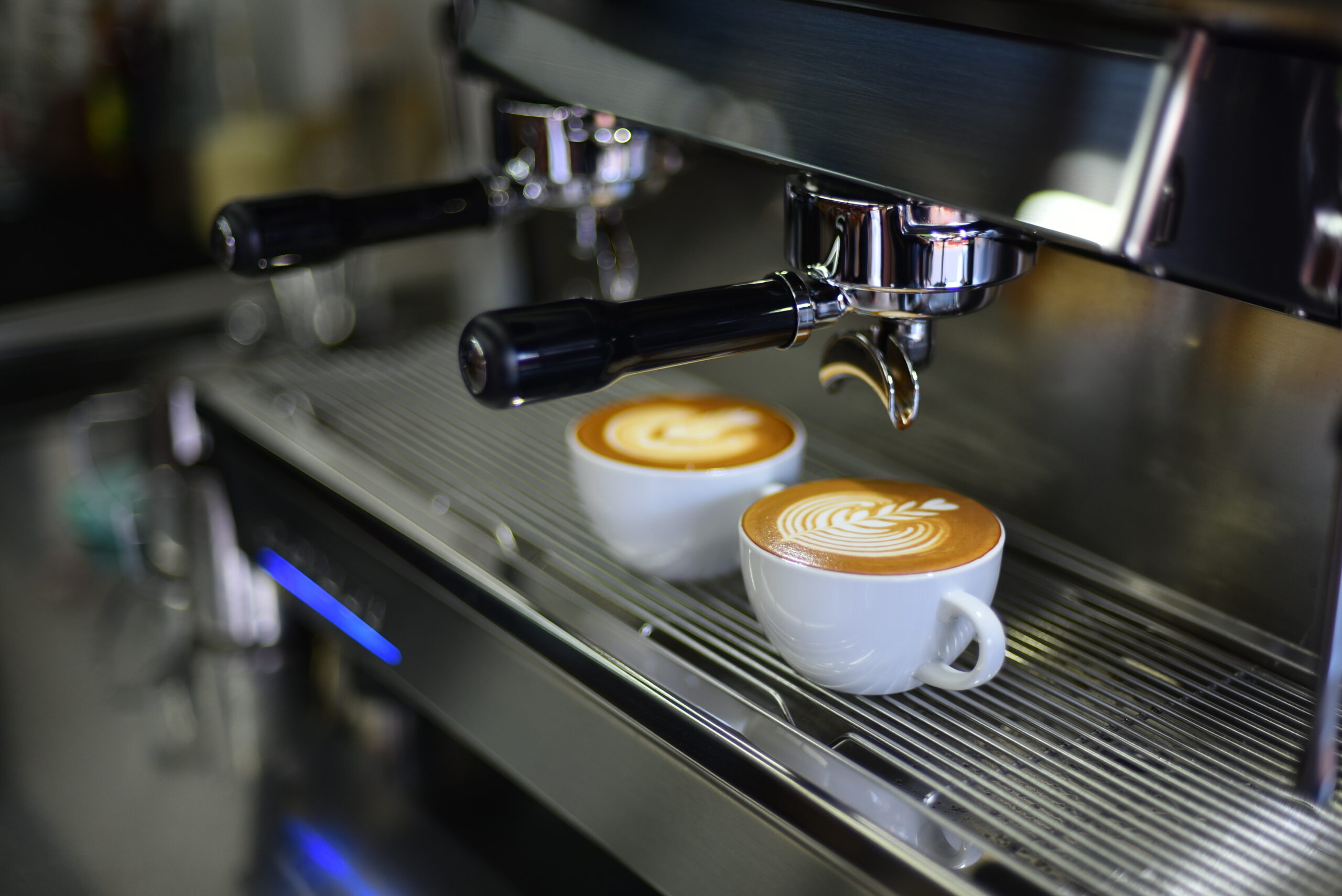
In a commercial kitchen, proper plumbing is not just a compliance matter; it’s a cornerstone for operational efficiency and safety.
In this blog article we are going to address two common queries of commercial hospitality settings: do commercial coffee machines require plumbing, and what should be the correct hot water temperature in a commercial kitchen? Let’s delve into these questions and offer some clarity.
Do commercial coffee machines need plumbing?
The simple answer is: it depends on the type of machine you are using. Commercial coffee machines come in various forms, therefore their plumbing requirements vary.
Types of commercial coffee machines
Traditional Espresso Machines: These often require a water line connection, making them more suitable for high-volume settings.
Bean-to-Cup Machines: These machines generally have built-in water tanks but can also be hooked up to a water line for larger operations.
Pod Machines: These are usually equipped with water reservoirs and don’t necessarily require plumbing. These machines are not usually intended for commercial use.
Essentially, if your commercial coffee machine has a water line attached to it, it requires plumbing. Most commonly, this will be your traditional commercial espresso machines found in most restaurants and cafes.

What does it mean to require plumbing?
When we say a machine ‘requires plumbing,’ we’re talking about a dedicated water supply line that directly feeds into the machine. This is often a non-negotiable feature for high-volume hospitality establishments where the coffee machine sees constant use. A dedicated water line ensures that the machine has a consistent, uninterrupted supply of water from your main water supply, making it easier to manage during peak business hours.
Installation and setup
The setup of a commercial coffee machine is not as simple as plugging the machine into an electrical outlet. You’ll need a certified plumber to install the water line and ensure that it meets all local building codes and regulations. The plumber will connect the machine to your water supply and may also install a water filter to improve the quality of the water going into your coffee. This setup ensures that the machine operates optimally and extends its lifespan.
Additional considerations: water pressure and filtration
Water pressure is another important consideration. Your espresso machine will require a specific water pressure range for optimal performance, typically around 2-3 bars. Outside this range, you may encounter issues like slow brewing times or, conversely, quick shots that don’t extract all the flavors from the coffee grounds.
Installing a water filter not only purifies the water, making your coffee taste better, but it also prevents scale buildup inside the machine. Scale buildup can reduce the efficiency of the machine, leading to costly repairs or replacements down the line.

Compliance and codes
Connecting a water line to a coffee machine also comes with compliance responsibilities. It’s not just a matter of running a pipe from the main water line to the machine. You may need to install backflow preventers to ensure contaminated water doesn’t flow back into the clean water supply. The plumbed coffee machine installation must meet local building codes, and it’s often required to get an inspection from local authorities to ensure the setup complies with health and safety standards.
Ongoing coffee machine maintenance
Once your machine is connected to a water line, regular maintenance becomes even more critical. You’ll need periodic checks to ensure that water pressure is within the optimal range, the water filter is functioning correctly, and there are no signs of leakage or scale buildup.
What temperature should hot water be in a commercial kitchen?
Getting your hot water temperature right in your commercial kitchen is not just about compliance but also about safety and efficiency.
Health codes and guidelines
According to the Safe Food Australia Standards (updated July 2023), Standard 3.2.3 Food Premises and Equipment, Section 4 on water supply states:
4(1) Food establishments must ensure a sufficient water supply if water is utilised for any activities carried out within the premises. A ‘sufficient water supply’ is defined as potable water accessible in a volume, pressure, and temperature that adequately meets the needs of the business. Considerations include the food handling processes, cleaning and sanitising tasks, operating hours, and peak time demands.
Temperature
While the standard does not dictate water temperatures for specific activities, the following factors should be taken into account:
- Hand washing stations typically require warm water (commonly regarded as 20°C–40°C) — refer to clause 14.
Regarding cleaning and sanitising tasks:
- Employing hot or warm water for cleaning tends to be more effective than cold water as the heat assists in removing grease and fats. Certain cleaning agents necessitate usage with water at specific temperatures (see manufacturer’s instructions).
- Dishwashers and alike appliances may require water at particular temperatures for the wash or rinse cycles, especially for sanitisation purposes — refer to the appliance’s operating manual for more details.
- For manual sanitisation with hot water, a minimum temperature of 77°C for a duration of at least 30 seconds (in accordance with US Food Code 2013) or its equivalent is advised
- Certain sanitising agents require usage with water at specific temperatures.
For complete information, please refer to the full Safe Food Australia guidelines.

Risks of incorrect hot water temperature
Bacterial Growth: Water temperatures below 60°C are not sufficient to kill bacteria, posing health risks.
Scalding: Extremely high temperatures can result in skin burns and should be avoided, especially in handwashing sinks.
Tips for maintaining ideal temperature
Routine Checks: Regularly inspect your hot water systems to ensure they are at the correct temperature.
Plumbing Maintenance: A well-maintained plumbing system helps maintain consistent water temperatures, ensuring you have access to hot water when you need it.

The importance of regular commercial plumbing maintenance
A well-run commercial kitchen relies heavily on its plumbing infrastructure. Regular plumbing checks, repairs and maintenance are vital for compliance and operational efficiency. Inconsistent hot water temperatures or plumbing issues with your coffee machines could lead to downtime or worse—health code violations.
This is where having a trusted partner such as our team at PBR Plumbing is so valuable. Our expertise in commercial plumbing and maintenance ensures that your facility’s plumbing is in optimal condition, allowing you to focus on what you do best—running your business. By choosing PBR Plumbing, you’re selecting a partner that understands the nuances and demands of a commercial kitchen’s plumbing needs.

Ensure operational efficiency by working with PBR Plumbing
Understanding the plumbing requirements for commercial coffee machines and the hot water temperature guidelines is not just about ticking compliance boxes. It’s about operational efficiency, safety, and ultimately, customer satisfaction. Partnering with our professional team at PBR Plumbing ensures you remain on top of your game when it comes to maintaining these crucial aspects of your commercial kitchen.
Take the next step in streamlining your operations. Contact PBR Plumbing today for all your hospitality plumbing and commercial plumbing needs.
FILL IN THE FORM BELOW AND OUR TEAM WILL
GET IN TOUCH.
